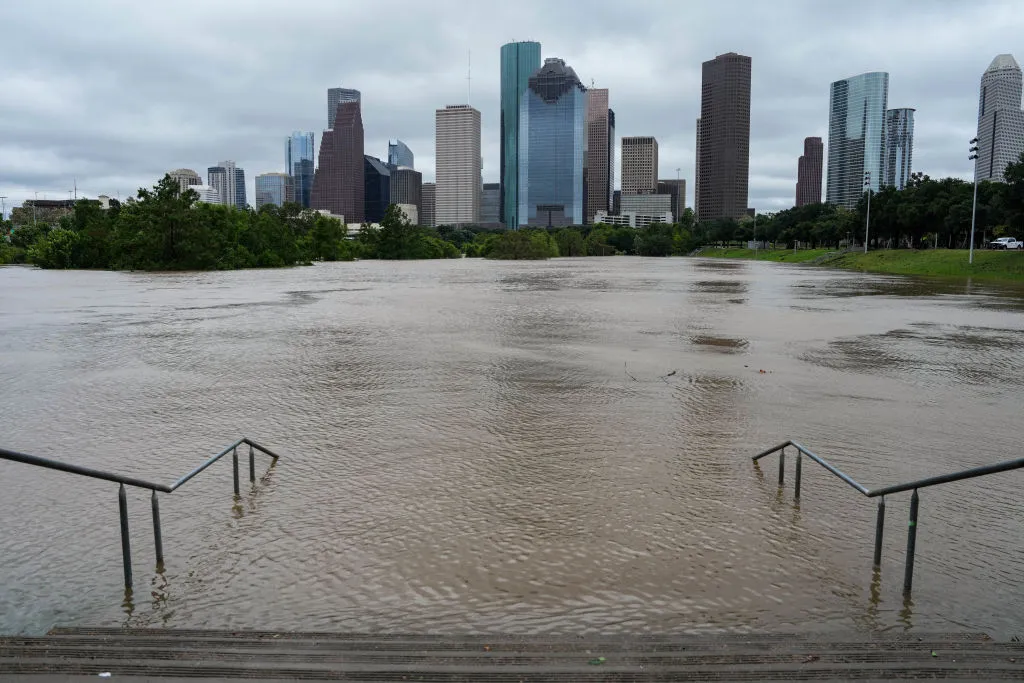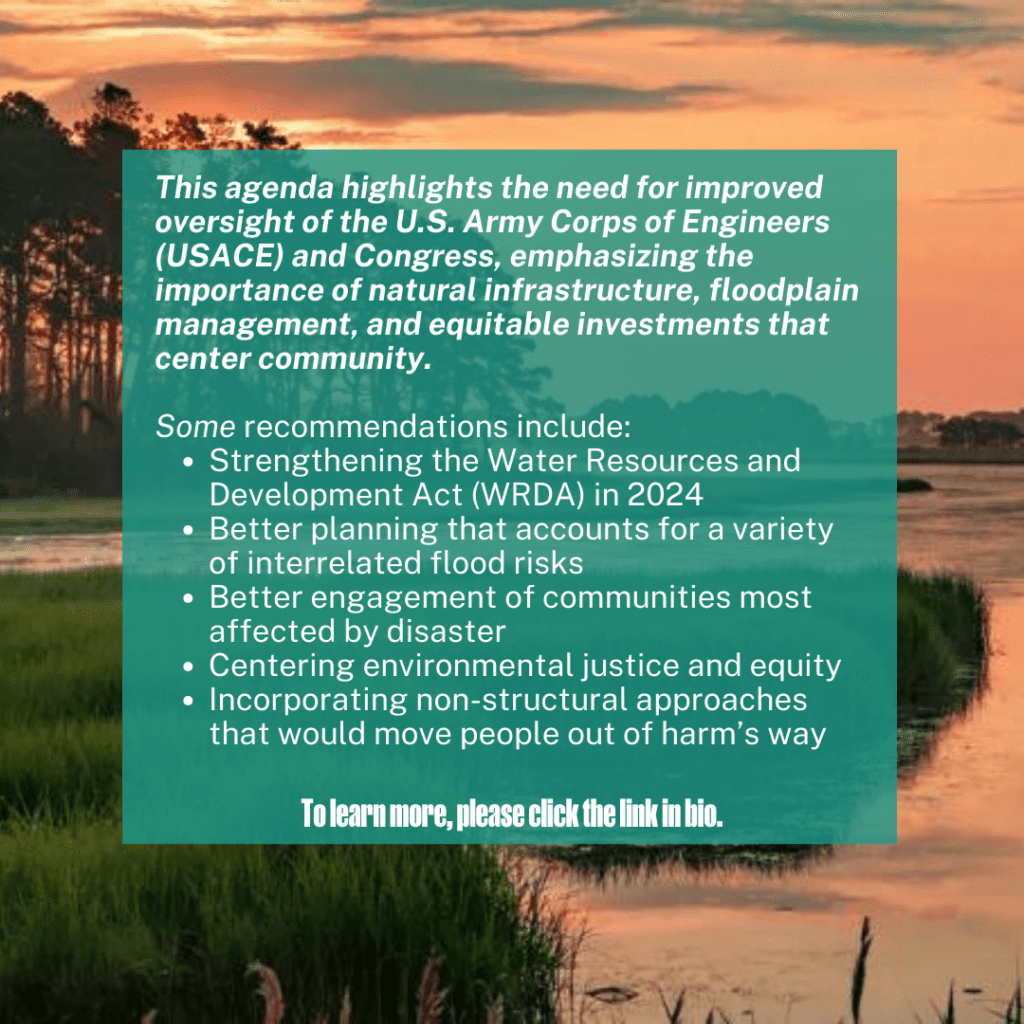Coastal communities continue to wait on expensive megaprojects that have not materialized, even as they face ever more severe hurricane seasons.

FOR IMMEDIATE RELEASE: This month, in the wake of Hurricane Beryl and a new hurricane season, community-based advocacy organizations and researchers across the U.S. Atlantic and Gulf Coasts of the United States have released a policy brief drawing awareness to the multifaceted and rapidly evolving threats that climate change brings to our communities— and the inadequate response by the federal government.
The campaign is led by The Resilient Coastal Communities Project at Columbia University, the Texas-based Surge Forward coalition (including Houston-based Bayou City Waterkeeper), Miami Waterkeeper, and Norfolk-based Wetlands Watch.
The 2024 hurricane season is expected to bring a record number of storms to the United States. Across the Atlantic Seaboard, Gulf South, Miami, and Puerto Rico, communities are no safer than they were from storms like those they continue to recover from: Sandy, Harvey, Maria, Florence, and more. The federal government’s main approach to addressing these long-term risks has been to design costly large-scale infrastructure projects with long timelines that have yet to move forward. Yet without needed policy change, those projects fall short in providing the protections communities need.
Responsibility for these projects falls on the Army Corps of Engineers (USACE), the federal agency that typically builds and manages large-scale infrastructure projects like bridges, dams, and levees and Congress which decides on how these projects are funded. To address risks from hurricanes, USACE has largely relied on its typical traditional concrete-and-steel approaches. These have proven extremely expensive and, due to climate change, may become obsolete by the time they are built as climatic conditions change. The agency currently has a list of proposed but unfunded storm surge-centric projects across the US totalling at least $149 billion in estimated costs and 20-year timelines for construction. These include the $52 billion New York and New Jersey Harbor and Tributaries Study (HATS) and the $57 billion Ike Dike in Houston.
Sea-level rise, heavy rains, storm surge, and high winds will all be stronger and more damaging in a warmer world— yet the Army Corps’ projects have largely failed to account for these threats, or for how under-investment in infrastructure across the United States has left lower-wealth and marginalized communities especially vulnerable to flooding.
The Gulf and Atlantic coalition has detailed these issues in a policy brief and developed a set of policy recommendations for improved Congressional oversight of the Army Corps’ processes, and increased coastal resilience through natural infrastructure, floodplain management, and equitable investments.

Other recommendations include:
- Strengthening the Water Resources and Development Act (WRDA) in 2024
- Better planning that accounts for a variety of interrelated flood risks
- Better engagement of communities most affected by disaster
- Centering environmental justice and equity
- Incorporating non-structural approaches that would move people out of harm’s way
For more details, please access the policy brief here: Policy Brief: Improving Coastal Resiliency Projects with USACE
En español: haga clic en el enlace.
Quotes from local and regional advocates
“To make the most of unprecedented investment, the federal government must prioritize protecting natural flood protections like wetlands and reducing risks along the dangerous Houston Ship Channel and industrialized coastal corridors,” says Kristen Schlemmer, the Sr. Legal Director for Bayou City Waterkeeper, a Houston-based water justice organization that is part of the Texas-based Surge Forward coalition.
“Without action now, before WRDA 2024 and more projects begin work, USACE and Congress risk spending billions of taxpayer funds on solutions that still leave our most vulnerable communities unprotected from disastrous flooding events.” says Robert Rosso, a Research Associate with the Resilient Coastal Communities Project at Columbia University.
“We’re about to spend hundreds of billions of dollars on coastal protection,” said Skip Stiles. “Congress and the USACE need to get it right before we do to insure proper protection and avoid wasting tax dollars.”
“Coastal Storm Risk Management projects will change the face of the communities where they are built–for better or worse, depending on how they are designed. If done right, these projects represent an opportunity to move the needle in society for innovative outcomes that rely on the power of natural systems to solve some of our most pressing challenges,” said Audrey Siu, Policy Director with Miami Waterkeeper.
Media contacts:
Jacqueline Klopp RCCP, Columbia Climate School, jk2002@columbia.edu 212-851-2979
Surge Forward Coalition: Joanie Steinhaus, Ocean Program Director for Turtle Island Restoration Network, joanie@tirn.net and Yudith Nieto, Organizing and Cultural Strategies Manager at Bayou City Waterkeeper, yudith@bayoucitywaterkeeper.org 832-867-1250
Skip Stiles, Senior Advisor, Wetlands Watch: skip.stiles@wetlandswatch.org: 757-621-1185
Audrey Siu, Policy Director, Miami Waterkeeper: media@miamiwaterkeeper.org
Thank you to our partners at Columbia Climate School, Wetlands Watch, Miami Waterkeeper, and Surge Forward coalition members like National Wildlife Federation, and Turtle Island Restoration Network for collaborating on this policy brief and press release.
